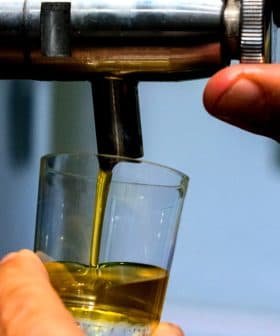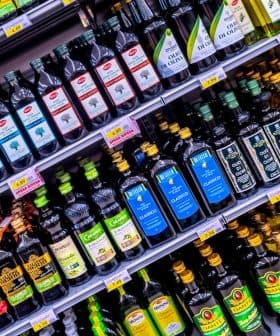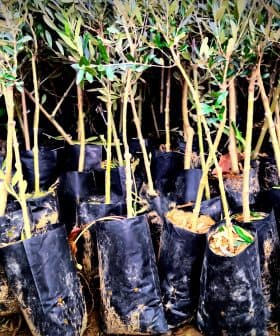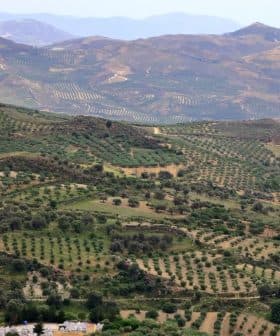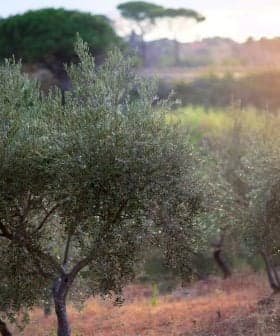Cioloş Unveils Plan for Ailing Olive Oil Sector
European Commissioner for Agriculture Dacian Cioloş presented an action plan to address issues in Europe’s olive oil sector, including promoting quality through fraud detection, reducing fragmentation among producers, and strengthening the International Olive Council. The plan aims to boost the sector, which is facing low prices, falling incomes, and a surplus of olive oil, with proposed changes including a new olive oil classification, stricter quality control measures, and increased competition with non-EU producers. Feedback from EU producer countries is expected by the end of July, with the plan covering quality control, restructuring, promotion, and competition issues in the sector.

A new grade of olive oil is among changes that could spring from an action plan for Europe’s ailing olive oil sector.
Also being discussed are measures to promote quality via better fraud detection and deterrence, such as stricter and more frequent testing; financial incentives to reduce fragmentation among producers, thereby increasing their bargaining power with large retail chains; and increasing the leadership of the International Olive Council (IOC) by admitting countries where olive oil is not produced but is consumed.
European Commissioner for Agriculture Dacian Cioloş outlined the action plan to ministers from the EU producer countries of Cyprus, France, Greece, Italy, Malta, Portugal, Slovenia and Spain in Luxembourg yesterday, saying he hoped concrete changes would be agreed on by the end of July following the countries’ feedback. The plan was formally presented to all 27 member states at a meeting today.
The move comes after months of consultation with the sector and amid record low producer prices, falling farm incomes and a huge surplus of olive oil this season. The EC has already intervened with private storage aid three times in seven months but prices have not budged.
Cioloş said the plan was designed to give a boost to the sector, which was, paradoxically, facing structural problems relating to the sale of olive oil although there was “considerable potential consumption in Europe and outside.”
New classification
Among the measures he’d like the countries to consider is a new classification, “a different category so as to bring out more the specific qualities of the different oils.”
“At the moment we’ve got virgin oil and olive oil, but olive oil is a huge category that covers mixtures of olive oil and olive residue oil, so I think there is room for improvement there” Cioloş said.
The plan has so far met a generally positive reaction, though in Spain some have criticised the lack of concrete proposals and measures to provide immediate help.
The paper, released in French, is split into six sections headed quality control, restructuring of the sector, the value chain, promotion, the IOC, and competition with non-EU producer countries.
Quality control
In a draft version of the plan obtained by Olive Oil Times, the quality control section says there is a need to crack down on deodorization, which is used to avoid the detection of inferior oils in illicit blends passed off as virgin olive oil.
There is also reference to an increasingly competitive atmosphere developing as countries that are big importers of olive oil also increase their own production and use testing methods other than those recognized by the Codex Alimentarius or the IOC, and “with questionable results, particularly with regard to the organoleptic qualities of EU exports.”
Some industry members want a tightening of quality and authenticity parameters, and improvements to the panel testing method, the draft paper says, but this must be thoroughly analyzed in order to make a convincing case to the IOC on revision of the olive oil marketing standard.
The paper also proposes asking the IOC to expedite its work on the following four matters:
- a reduction in the allowable level of stigmastadiene, to improve detection of other vegetable oils in olive oil
- a reduction in the alkyl esters limit, to exclude more deodorized oils
- the definitive adoption of the ‘global method’ for the detection of extraneous oils in olive oils
- adoption of a method to determine the amount of diglycerides and triglycerides in olive oils, to combat fraudulent blends and assess freshness
.
Among other changes floated are increased testing and application of sanctions; requiring strict adherence to EC regulations, such as reporting to it on irregularities found and sanctions applied; and encouraging all EU member states to allow only non-refillable bottles to be used for olive oil served in restaurants.
Labeling
“The problem” of including a best before date needs further study, the draft says. First a technical review should take place of changes over time in the physico-chemical parameters of olive oils.
IOC
The 2005 agreement on the operation of the IOC expires at the end of 2014. The draft plan proposes discussion with the IOC on widening the scope of the next agreement to cover not only olive oil producer countries, but consumer countries, “thereby strengthening the organization’s leadership.”
“For the EU, IOC standards are the benchmark for international trade. It is best to support the organization and to encourage debates on improving quality to take place within this forum” it says.
Competition with non-EU producers
Since the 1990s, there’s been considerable increase in production beyond olive oil’s historical cradle, the Mediterranean basin, the draft says.
In what could be a reference to countries such as the United States and Australia, it goes on to say: “Some new producer countries are also major consumers of EU oil and have, through their olive oil production sectors, played a key role in the emergence of new quality parameters which deviate from those of the IOC and instead meet the demands of their own markets.”
“The EU should continue to oppose any deviation from the Codex as well as any move that could act as a technical barrier to trade” it says.
Among other measures on the table are allowing producer organizations to temporarily take a certain category of oil, such as lampante, off the market when prices are weak for higher quality oils, and to do so without breaching competition laws.
Reasons for optimism
The EC conducted an economic analysis of the sector which noted that olive oil is a healthy product which should be easy to sell and there were good grounds for optimism about the sector’s future, notwithstanding the current problems with low producer prices and a big surplus.
When faced with large surplus stocks in the sugar and wine sectors in the past, the EC has paid people to get out of production. It’s understood that such a scheme — called ‘grubbing up’ when referring to ripping up grapevines — was considered but ruled out as inefficient for the olive oil sector, where many of the least profitable plantations are also the most extensive ones.
This is a breaking news article. Check back for updates.



